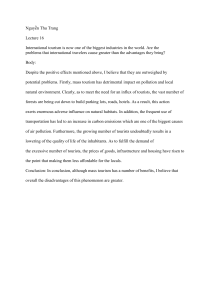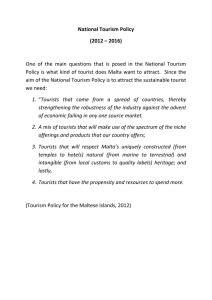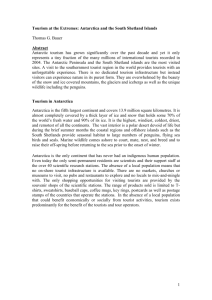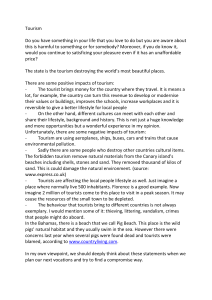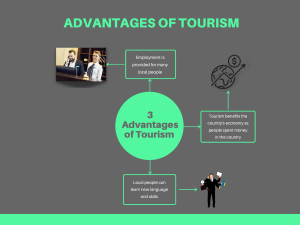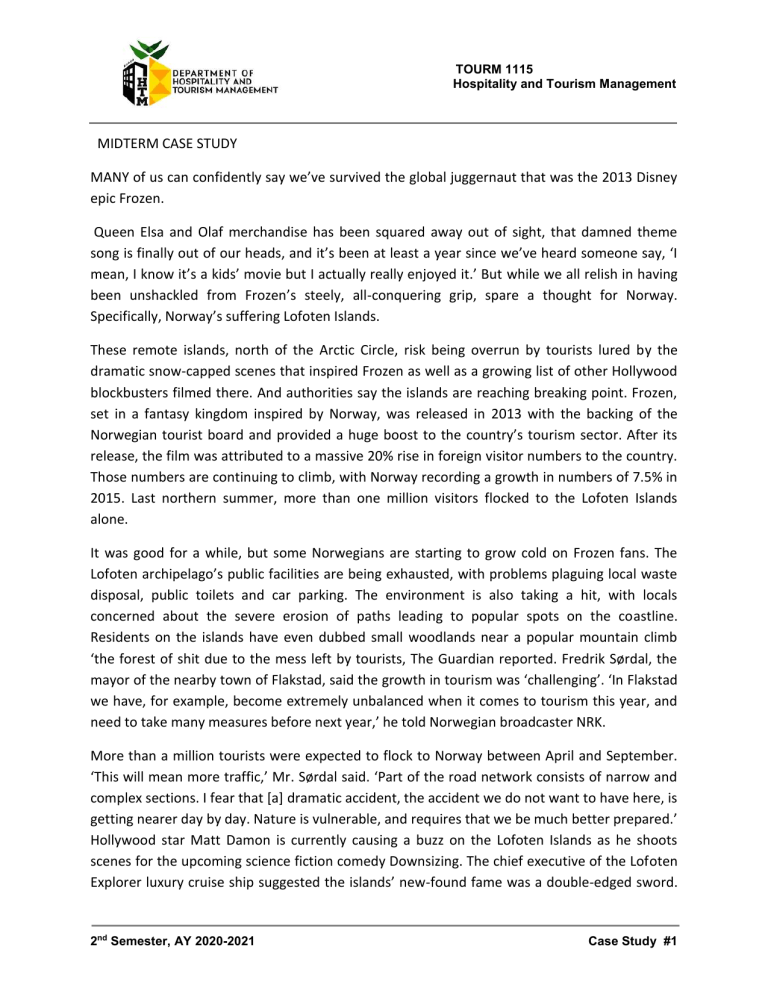
TOURM 1115 Hospitality and Tourism Management MIDTERM CASE STUDY MANY of us can confidently say we’ve survived the global juggernaut that was the 2013 Disney epic Frozen. Queen Elsa and Olaf merchandise has been squared away out of sight, that damned theme song is finally out of our heads, and it’s been at least a year since we’ve heard someone say, ‘I mean, I know it’s a kids’ movie but I actually really enjoyed it.’ But while we all relish in having been unshackled from Frozen’s steely, all-conquering grip, spare a thought for Norway. Specifically, Norway’s suffering Lofoten Islands. These remote islands, north of the Arctic Circle, risk being overrun by tourists lured by the dramatic snow-capped scenes that inspired Frozen as well as a growing list of other Hollywood blockbusters filmed there. And authorities say the islands are reaching breaking point. Frozen, set in a fantasy kingdom inspired by Norway, was released in 2013 with the backing of the Norwegian tourist board and provided a huge boost to the country’s tourism sector. After its release, the film was attributed to a massive 20% rise in foreign visitor numbers to the country. Those numbers are continuing to climb, with Norway recording a growth in numbers of 7.5% in 2015. Last northern summer, more than one million visitors flocked to the Lofoten Islands alone. It was good for a while, but some Norwegians are starting to grow cold on Frozen fans. The Lofoten archipelago’s public facilities are being exhausted, with problems plaguing local waste disposal, public toilets and car parking. The environment is also taking a hit, with locals concerned about the severe erosion of paths leading to popular spots on the coastline. Residents on the islands have even dubbed small woodlands near a popular mountain climb ‘the forest of shit due to the mess left by tourists, The Guardian reported. Fredrik Sørdal, the mayor of the nearby town of Flakstad, said the growth in tourism was ‘challenging’. ‘In Flakstad we have, for example, become extremely unbalanced when it comes to tourism this year, and need to take many measures before next year,’ he told Norwegian broadcaster NRK. More than a million tourists were expected to flock to Norway between April and September. ‘This will mean more traffic,’ Mr. Sørdal said. ‘Part of the road network consists of narrow and complex sections. I fear that [a] dramatic accident, the accident we do not want to have here, is getting nearer day by day. Nature is vulnerable, and requires that we be much better prepared.’ Hollywood star Matt Damon is currently causing a buzz on the Lofoten Islands as he shoots scenes for the upcoming science fiction comedy Downsizing. The chief executive of the Lofoten Explorer luxury cruise ship suggested the islands’ new-found fame was a double-edged sword. 2nd Semester, AY 2020-2021 Case Study #1 TOURM 1115 Hospitality and Tourism Management ‘It may be too much of a good thing if even more tourists come here thanks to the film (Downsizing),’ Gunnar Skjeseth told NRK. ‘We in the tour business have more than enough to do already, all year round. It is debatable whether we need more tourists.’ The storybook village of Bergen was reportedly the inspiration for Anna and Elsa’s home kingdom of Arendelle. After the film’s release Disney launched adventure tours through Norway, including visits to Bergen and treks through fjord country, which remain popular. It’s a phenomenon similar to what’s been dubbed the ‘Game of Thrones effect’, which has seen visitor numbers skyrocket at filming locations used by the HBO series. Game of Thrones has been cited as a key factor behind a surge in tourism in Norway’s Nordic neighbor, Iceland, which saw the number of holidaymakers rise from 566,000 in 2011 – the year the series premiered – to more than one million in 2015. The small Spanish city of Osuna, where scenes set in Meereen were shot, is experiencing a similar surge in popularity. Source: Lauren McMah, http://www.news.com.au/travel/world-travel/europe/ norway-is-reachingbreaking-point-because-of-disneys-frozen/news-story/ 5c0cf9cc3dfa5477dc3541c0c38d90b2, 11 August 2016 Discussion/ Guide Questions 1. Films are a great way of promoting destinations and raising their profile, but can lead to unforeseen consequences when they attract tourists by their thousands. What can destinations do to control these surges of visitor arrivals? 2. When attracting tourists from international markets using concepts developed in another country, what do you think the socio-cultural impacts may be? Format Background of the Study Statement of the Problems Recommendation Conclusion Arial, 12, single space 2nd Semester, AY 2020-2021 Case Study #1
